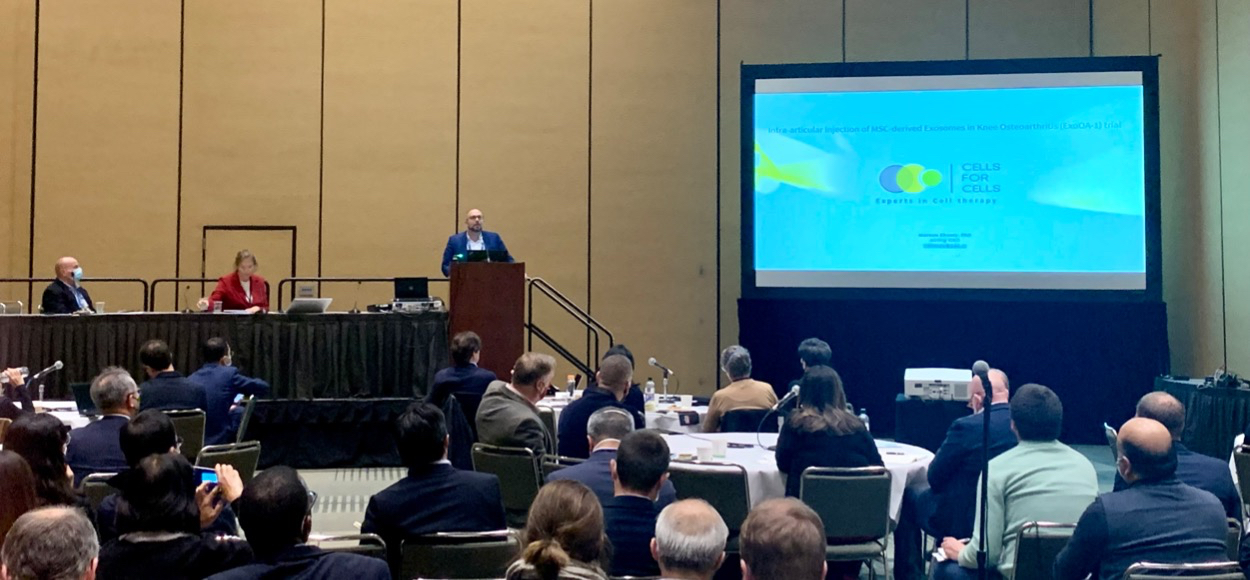After two years of the COVID-19 pandemic, scientists from different parts of the world met again at the annual meetings of the International Society for Cell Therapy (ISCT), and the International Society for Extracellular Vesicles (ISEV) held last May in the cities of San Francisco (USA) and Lyon (France), respectively.
The Cells for Cells participated in both instances through its executive, Dr. Maroun Khoury, who presented the innovative use of extracellular vesicles as a treatment for knee osteoarthritis. The outstanding research in the clinical study phase has the first patient, a Chilean woman, to receive this novel therapy unique in the world. In San Francisco, Dr. Khoury was joined by Maximiliano Kunze, who is part of ISCT’s Business Development and Finance subcommittee.
At the annual meeting of ISEV held in France, Cells for Cells participated through Dr. Khoury, the principal investigator, Dr. Francisca Alcayaga, also part of the Center for Biomedical Research and Innovation (CIIB) of the Universidad de los Andes, and research assistant, Aliosha Figueroa. Figueroa presented the results of the study conducted on preclinical models with osteoarthritis, which showed excellent results after being treated using a type of small extracellular vesicle called exosomes.
“In recent years, our group has been working with small extracellular vesicles derived from menstrual cells, which have an anti-tumor effect on different cancers. This effect is mainly because they inhibit the formation of blood vessels (anti-angiogenic effect) that feed and oxygenate the tumor, causing (consequently) the death of the tumor mass. During the ISEV congress, we presented the mechanism of action of these extracellular vesicles, i.e., how these vesicles induce this anti-angiogenic effect,” explained the researcher.
In addition, the researchers presented the development of a culture medium for the production of small extracellular vesicles, which, due to its chemically defined and xeno-free features, i.e., free of animal derivatives, improves the quality standard for potential clinical applications of these small vesicles. For Aliosha Figueroa, who obtained a grant from ISEV for his participation, “these instances allow us to present our results and advances to the specialized scientific community, discuss them and receive feedback that can be very relevant to continue improving. For us, it is important to show what we are doing in Chile with extracellular vesicles in the treatment of osteoarthritis, which is something that probably no one else in the world is doing”, he assured.







